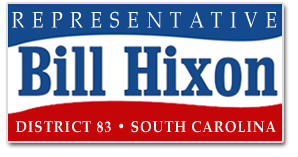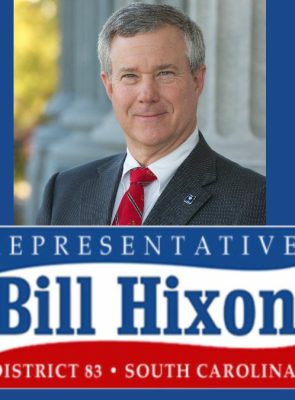
Closer to my role as your state House member, the House this week approved H. 3185 – a bill requiring more transparency in Higher Education. Under the provisions of the bill, all state public colleges and universities are required to post a monthly registry of all expenditures and dollar amounts on their websites for public examination. All of these institutions have said they support the bill. I believe that the responsible spending of the hard-earned dollars you pay in taxes is my most important job as an elected official. This transparency bill is another step the House is taking to make your state government is spending more transparent and accountable. Every dollar the government spends should be accounted for. This bill will hold not only improve transparency but also make these institutions think harder about the money they spend.
Tort Reform is Good for Business
We are anxious to begin debate on a bill that we believe will improve our economic climate and accelerate our economic recovery. We are scheduled to begin debate on lawsuit abuse reform legislation – a key pro-business bill that we believe will help create jobs. Tort Reform has been touted by many business organizations as one of the most effective economic improvement issues before the General Assembly. We believe the legislation will lower the cost of doing business in South Carolina by reducing frivolous lawsuits and limiting punitive damages to realistic levels. We aim to do this while still ensuring you have access to the legal system if you are truly wronged.
Charter Schools
Students in South Carolina's public charter school district received a big boost this week after the House Education and Public Works Committee approved sweeping legislation to strengthen these public schools. The bill provides funding parity for public charter schools sponsored by the state public charter school district since its creation. Charter schools are public schools and are held to the same accountability standards as their traditional counterparts. Unlike traditional public schools, public charter schools must meet specific performance goals or they can be closed due to poor performance. It is this measure of accountability that drives public charter schools to develop new and innovative teaching practices to meet the needs of their students. The bill will not remove one penny of money from public education, but it will ensure that public charter schools, that are meeting the needs of their students, will stay open this fall and thrive in the future.
Private Transfer Fees Banned by Bill
How would you like a developer to put a 99 year deed restriction on your home that calls for an unspecified percentage (usually 1%) to be added to the sale price of your home every time it's sold for the next Century? Think of it as a private tax. That would give folks sticker shock at the closing table. H.3095 bans the practice before it gets a foothold in SC. I voted for passage of the bill which now goes to the Senate. In total, 17 states have banned this practice, including NC, FL, LA and TX.
Texting & Driving Bill
The S.C. House passed a ban on texting and driving last year. The Senate did not act on the bill. Two new bills are filed in the House this year. I expect at least one of them to be heard in subcommittee some time soon.
Employment Insurance Taxes
Last year, as part of the reform law to the Department of Employment and Workforce, a new system was set in place for how much businesses will have to pay for unemployment insurance in the state. For several years, the state failed to make adjustments to the rate system while the Unemployment Trust Fund ran out of money necessitating that the state borrow money from the Federal Government to pay unemployment benefits. Now, the State has to replenish the Fund and pay back the money borrowed from the Federal Government. The new rate system creates 20 rate tiers with companies which laid off more workers paying more and those which laid off fewer workers or none at all paying less. Nearly 50,000 of the state’s 85,000 businesses will pay less each year under the new rate structure with the minimum annual unemployment rate decreasing 88 percent to $10.30 per employee. However, businesses that cut the most workers will pay higher unemployment premiums with the highest paying $1,127.90 per worker from the previous high of $427.00. The goal is to pay back the money borrowed from the federal government within four years and to make the rate structure more equitable depending on how much a company used it. The current rates will be reevaluated in 3 years, 2014.




